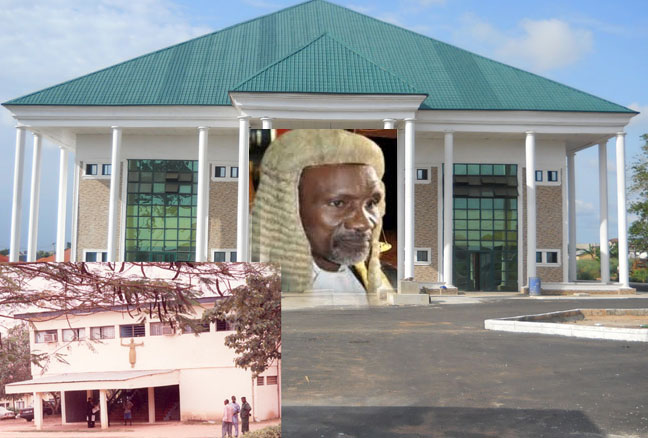Abia State In Crisis Moment - Political Perspective


New and Old High Court Umuahia with Supreme Court Chief Justice
|
AFP

God’s own state has become a private inheritance for a few families in the last sixteen years. The thesis of objective governance is designated to find its revolving content on democracy as framework of ruling or leadership implementations, but the constructs had been a trend of obvious mismatch. It is not in my interest to blame or criticize Orji Uzor Kalu, nor am I preoccupied with the manner and approach of Theo Orji his successor, who just handed the rolling ball to Ikpeazu, nor do I know Oti as the anticipated messiah for the Abians. My point is that a Leadership paradigm should focus on the people and for the people.
The problem of leadership in Nigeria, with great emphasis in Igboland is that we evaluate leaders after their time of governance. Evaluation for the sake of progress should be three dimensional--pre-existing, existing and post-existing. Democracy explains that power belongs to the people; and the people handover this power to the politicians with political will and trust. Unfortunately, politicians have always taken the birthright of abusing this privilege because amidst their misrepresentation of power, they receive praise from the abused masses even when we criticize their administrative flaws and throw blames on how they carry out leadership motifs. They understand very radically that it is about speech and not about action. Until our people settle into creating a comprehensive paradigm of addressing these political mismatches used by the politicians in a consistent systematic action orientated steps, things will remain the same.
To be a good leader entails ruling from the heart, but because the Nigerian political setting is an affair of the jungle, most of the guys in the game have lost their hearts. Therefore, there are no ethics behind political intentions and implementations. Therefore the “Jungle construct” is another big problem in the political organizational setting that should be at the root of our concern when leadership is about killing, murdering, assassination and destruction of pre-existing communal goods at the prompting of private intents and interests. For instance, Theo Orji, in an attempt to shatter the pre-existing institutional structures that empower the people of Abia to a sustainable level of survival, he demolished the Umuahia Main Market, so that all the people and constituted institutions who relied on that market for survival will either die or leave the state. Instead of empowering the people, he rather enrolled the masses into unemployment. Great institutions at the center of Umuahia began to settle in poverty, fear, humiliation and pain.
An ethnographic understanding of this political situation, informs us that the people need a change, but my question is: where are we going? Is it a matter of context-which is either Ikpeazu or Oti, or are we beginning to radically focus on the reality of leadership--the people, dispensation of communal resources or common good for effective development and enlightenment? I know the Supreme Court, considering the trends of leadership and political dynamics in God’s own state, will play a decent role by highlighting the font of justice for whoever should manage the fallen house of Abia State. In a nutshell, my concern is that politicians should have a “rethink” paradigm, shaped for significant change and our people should change their political perspective with meaningful actions for the future is radically not in the hands of politicians but in God’s sovereign plan.
Chukwuemeka Aribe.
 

|
|
|

